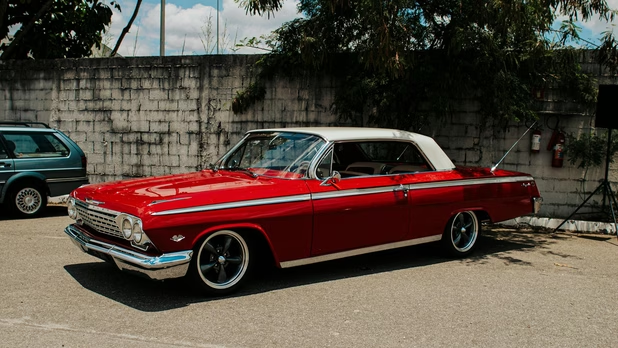Understanding Car Tax in Washington (WA)
For residents of Washington State, owning and maintaining a vehicle involves a thorough understanding of the state's car tax system. Car taxes are an essential source of revenue for the government, supporting infrastructure, public transportation, and various other services. To ensure compliance and proper budgeting, it is critical to know the applicable rates, payment methods, and potential exemptions available.
Washington's car tax system includes several components, such as the sales tax on vehicle purchases, annual registration fees, and other specific levies like the Motor Vehicle Excise Tax (MVET). These taxes vary depending on the vehicle's value, location of registration, and intended use. Understanding the nuances of these charges can help you manage your car-related expenses effectively.
In this article, we will delve into the various aspects of car taxation in Washington. We will explore the details of the sales tax, annual registration fees, and exemptions. Additionally, we will provide tips on how to calculate your total car tax obligations and answer common questions related to this topic.
Sales Tax on Vehicle Purchases
The sales tax in Washington is one of the most significant charges incurred during a vehicle purchase. This tax applies to new, used, and even private party sales. The general sales tax rate for the state ranges from 6.5% to 10.4%, depending on the jurisdiction. Local governments often impose additional taxes on top of the base state rate.
For example, if you purchase a vehicle in King County, the combined tax rate may be higher than in less populous areas like Ferry County. Additionally, this tax is calculated based on the vehicle's selling price, including dealer add-ons, warranties, and documentation fees, but it excludes trade-in values and manufacturer rebates.
It is essential to have clarity about how these rates are applied. The Department of Revenue (DOR) provides an online calculator to help residents estimate their total tax liability before making a purchase. Utilizing this tool can ensure that you are financially prepared for the full cost of acquiring a vehicle in Washington.
| County | Base Rate | Total Rate |
|---|---|---|
| King | 6.5% | 10.4% |
| Spokane | 6.5% | 8.9% |
| Ferry | 6.5% | 7.5% |
Annual Vehicle Registration Fees
Every vehicle owner in Washington is required to pay annual registration fees. These fees are determined by factors such as the vehicle's age, weight, and location. The base registration fee is $30, but additional charges often apply. For instance, counties like Pierce and Snohomish levy transportation benefit district fees that can add up to $80 to the total.
Motorcycles and trailers typically have lower registration costs compared to passenger cars or commercial vehicles. Owners of electric vehicles, however, may face additional fees to compensate for the lack of gasoline taxes. This surcharge can range from $75 to $150, depending on the type of vehicle.
To stay compliant, it is crucial to renew your registration on time. Late renewals may incur penalties. The Washington Department of Licensing (DOL) offers online, in-person, and mail-in renewal options to make the process convenient for residents.
- Base Registration Fee: $30 minimum.
- County-Specific Add-Ons: $20–$80.
- Electric Vehicle Surcharge: $75–$150.
Motor Vehicle Excise Tax (MVET)
The Motor Vehicle Excise Tax (MVET) is another significant component of Washington's car tax system. MVET is levied on the assessed value of your vehicle rather than its market value. This tax supports public transit projects like Sound Transit, which serves the greater Seattle area.
The calculation for MVET can be complex. It uses a depreciation schedule determined by the vehicle's age and initial value. For example, a vehicle that is one year old may be assessed at 90% of its original price, while a five-year-old car may only be valued at 50%.
Residents can appeal the assessed value if they believe it is inaccurate. Understanding how this tax is calculated can help vehicle owners verify that they are being charged appropriately. It's also worth noting that MVET charges vary across regions, reflecting the specific needs of local transit authorities.
Exemptions and Reductions
Washington offers several exemptions and reductions to make car ownership more affordable for eligible residents. Military personnel stationed in Washington but maintaining residency in another state are often exempt from certain taxes. Similarly, tribal members living on tribal lands may qualify for exemptions from sales and excise taxes.
Disabled veterans with a service-related disability may also be eligible for reduced registration fees. To apply, eligible individuals must provide proof of their disability status and meet specific income requirements. Another noteworthy exemption applies to vehicles used exclusively for agricultural purposes, which are taxed at reduced rates.
Understanding these exemptions is crucial for maximizing savings. By consulting the Washington DOL or relevant authorities, vehicle owners can determine whether they qualify for these benefits and learn the application process.
Calculating Your Car Tax Obligations
Calculating your total car tax in Washington involves summing up various components, including sales tax, registration fees, and MVET. For instance, purchasing a vehicle for $20,000 in King County would incur a sales tax of approximately $2,080 at a 10.4% rate. Adding base registration and county-specific fees could bring the total cost to over $2,200.
Online tools provided by the DOR and DOL can help simplify this process. These calculators consider local rates and any applicable exemptions, ensuring accurate estimates. Keeping receipts and documentation organized is equally essential for future reference or disputes.
Planning for these expenses in advance can help avoid financial strain. Understanding the components of your car tax obligations is a key part of responsible vehicle ownership in Washington.
Evaluation of IQTaxHub
Pros
Cons

December 2, 2024 at 4:38 p.m.
December 2, 2024 at 4:59 p.m.

